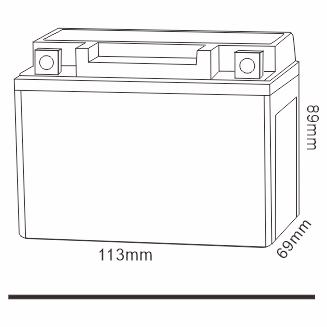When selecting a battery for your specific needs, understanding the differences between wet and dry cell batteries is crucial. These two types of batteries are widely used across various industries, but they have distinct characteristics that make them suitable for different applications. Let’s dive into the key differences, benefits, and common uses of wet and dry cell batteries.
What Are Wet Cell Batteries?
Wet cell batteries, also known as flooded batteries, contain a liquid electrolyte. This liquid facilitates the flow of electric charge, making the battery function effectively. Typically, the electrolyte is a mixture of sulfuric acid and distilled water.
Characteristics of Wet Cell Batteries:
- Rechargeable: Many wet cell batteries can be recharged, such as lead-acid batteries used in vehicles.
- Maintenance: These batteries often require regular maintenance, such as checking and refilling electrolyte levels.
- Orientation Sensitivity: They must remain upright to prevent spillage of the liquid electrolyte.
- Applications: Commonly found in automotive, marine, and industrial uses.
What Are Dry Cell Batteries?
Dry cell batteries, in contrast, use a paste-like or gel electrolyte instead of liquid. This design makes them more compact and versatile for a range of applications.
Characteristics of Dry Cell Batteries:
- Maintenance-Free: They do not require periodic maintenance, making them more user-friendly.
- Leak-Proof: Their sealed design minimizes the risk of leaks, allowing for greater flexibility in placement and use.
- Portability: Compact and lightweight, dry cell batteries are ideal for portable devices.
- Applications: Commonly used in flashlights, remote controls, motorcycles, and uninterruptible power supplies (UPS).
Key Differences Between Wet and Dry Cell Batteries
| Feature | Wet Cell Batteries | Dry Cell Batteries |
|---|---|---|
| Electrolyte State | Liquid | Paste or Gel |
| Maintenance | Requires regular maintenance | Maintenance-free |
| Orientation | Must stay upright | Can be used in any orientation |
| Applications | Automotive, marine, industrial | Portable devices, UPS, motorcycles |
| Durability | Less durable in portable scenarios | Highly durable and portable |
Choosing the Right Battery for Your Needs
The choice between wet and dry cell batteries largely depends on the specific application and your priorities regarding maintenance, portability, and durability:
- If you need a powerful and cost-effective battery for automotive or industrial purposes, wet cell batteries are a reliable choice.
- For portable devices or applications where maintenance-free operation is essential, dry cell batteries are the ideal option.

Why Choose TCS Dry Cell Batteries?
At TCS battery, we specialize in high-quality dry cell batteries designed to meet the diverse needs of our customers. Our dry batteries offer:
- Reliable Performance: Consistent power output for various applications.
- Certification Assurance: CE, UL, and ISO certifications for quality and safety.
- Environmental Responsibility: As China’s first lead-acid battery industry with an environmental protection negative pressure workshop, we prioritize sustainability.
- All lead smoke and lead dust are filtered before being discharged into the atmosphere.
- Acid mist is neutralized and sprayed before discharge.
- Rainwater and wastewater are treated through our industry-leading wastewater treatment system and recycled in the plant, achieving zero wastewater discharge.
- Industry Recognition: We passed the lead-acid battery industry condition and standards certification in 2015.
Frequently Asked Questions (FAQ)
What is the main difference between wet and dry cell batteries? The primary difference lies in the electrolyte. Wet cell batteries use a liquid electrolyte, while dry cell batteries use a paste or gel, making them more portable and leak-proof.
Are dry cell batteries better than wet cell batteries? Dry cell batteries are better for portable and maintenance-free applications, whereas wet cell batteries are more suitable for high-power and cost-sensitive uses.
Which battery type is more environmentally friendly? Dry cell batteries, especially those manufactured by TCS, are designed with environmentally friendly practices, such as zero wastewater discharge and advanced filtration systems.
Enhance Your Operations with TCS Dry Cell Batteries
Whether you’re looking for a durable battery for motorcycles, a dependable solution for UPS systems, or compact batteries for portable devices, TCS’s dry cell batteries deliver exceptional value while ensuring minimal environmental impact.
Meta Title
Wet vs. Dry Cell Batteries | Key Differences & TCS Sustainable Solutions
Meta Description
Explore the differences between wet and dry cell batteries. Discover why TCS's environmentally friendly dry batteries stand out with zero wastewater discharge.
Conclusion
Understanding the differences between wet and dry cell batteries helps you make informed decisions tailored to your specific requirements. As a trusted manufacturer and supplier, TCS battery offers a wide range of dry cell batteries that cater to various applications. Contact us today to explore our product line and find the perfect battery solution for your needs.
Post time: Dec-18-2024
